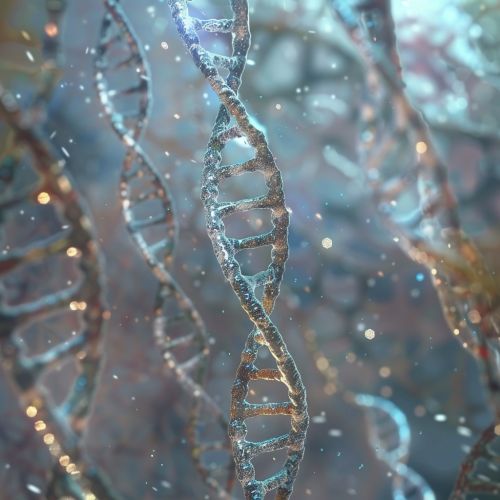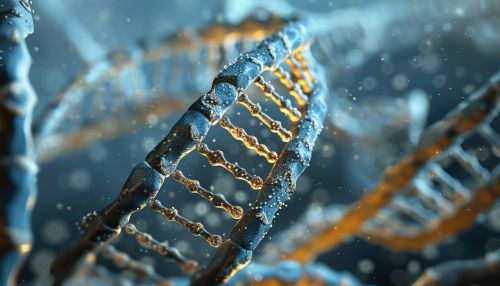Epigenetics and Aging
Introduction
Epigenetics, a branch of biology, studies changes in organisms caused by modification of gene expression rather than alteration of the genetic code itself. Aging, on the other hand, is a complex biological process that involves a variety of physiological changes over time. The intersection of these two fields, known as 'Epigenetics and Aging', is a rapidly growing area of research that seeks to understand how epigenetic mechanisms contribute to the aging process.


Epigenetics
Epigenetics involves changes in the physical structure of Deoxyribonucleic Acid (DNA), which can influence the way genes are expressed. This can occur through various mechanisms such as DNA methylation, histone modification, and non-coding RNA molecules. These changes can be influenced by several factors including the environment, age, lifestyle, and disease state.
DNA Methylation
DNA methylation is a process by which methyl groups are added to the DNA molecule, which can change the activity of a DNA segment without changing the sequence. DNA methylation typically acts to repress gene transcription and is a crucial part of normal development. It also plays a key role in processes such as X-chromosome inactivation, genomic imprinting, and preservation of chromosome stability.
Histone Modification
Histones are proteins that help package DNA into a compact, efficient form. They can be modified by adding or removing chemical groups, including acetyl, methyl, and phosphate groups. These modifications can alter the structure of the chromatin and ultimately influence gene expression.
Non-coding RNA Molecules
Non-coding RNAs (ncRNAs) are RNA molecules that do not code for proteins but can regulate gene expression. They can interact with DNA, RNA, and proteins to influence a variety of biological processes.
Aging
Aging is a complex process that involves the gradual deterioration of physiological functions, leading to increased susceptibility to diseases and ultimately death. The process of aging can be influenced by a variety of factors, including genetic, environmental, and lifestyle factors.
Genetic Factors
Genetic factors play a significant role in the aging process. Certain genes, known as longevity genes, can influence the lifespan of an organism. Mutations in these genes can either increase or decrease lifespan.
Environmental Factors
Environmental factors such as diet, exercise, and exposure to toxins can influence the aging process. These factors can lead to oxidative stress, which can cause damage to cells and tissues, accelerating the aging process.
Lifestyle Factors
Lifestyle factors such as diet, physical activity, and stress can also influence the aging process. A healthy lifestyle can delay the onset of age-related diseases and extend lifespan.
Epigenetics and Aging
Research has shown that epigenetic changes can influence the aging process. These changes can lead to alterations in gene expression, which can affect the function of cells and tissues, contributing to aging and age-related diseases.
Epigenetic Changes in Aging
As organisms age, there are global changes in the epigenetic landscape. These include changes in DNA methylation patterns, alterations in histone modifications, and changes in the expression of non-coding RNAs. These changes can lead to alterations in gene expression, contributing to the aging process.
Epigenetic changes can contribute to the development of age-related diseases such as cancer, cardiovascular disease, and neurodegenerative diseases. For example, changes in DNA methylation patterns can lead to the activation of oncogenes or the silencing of tumor suppressor genes, contributing to the development of cancer.
Epigenetic Interventions in Aging
Epigenetic interventions, such as drugs that modify DNA methylation or histone modifications, have the potential to delay aging and extend lifespan. These interventions can also potentially prevent or treat age-related diseases.
